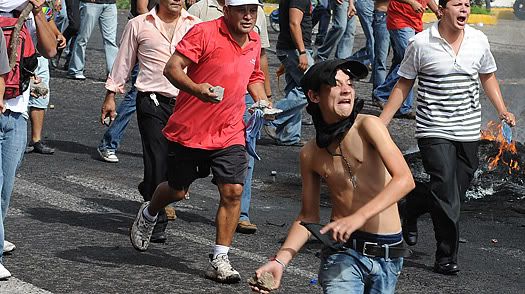Cross posted from The Stars Hollow Gazette
Afghan IG reopens probe into huge Leatherneck command center
By J. Taylor Rushing, Stars and Stripes
Special Inspector General for Afghanistan Reconstruction John Sopko notified Defense Secretary Chuck Hagel of the news in a Nov. 27 letter that was released by Sopko’s office Thursday. In the letter, Sopko complains that he never received an answer to questions he sent in July to Hagel, U.S. Central Command Commander Gen. Lloyd Austin III and U.S. Forces-Afghanistan Commander Gen. Joseph Dunford Jr., about the mammoth building, dismissed by many as a “white elephant,” never to be used. [..]
Sopko specifically complains about an investigation into the building by Maj. Gen. James Richardson, deputy commander of support for U.S. Forces in Afghanistan that was finished last month. Sopko said he delayed his own investigation to wait on Richardson’s report. A partial draft of the report was sent to Sopko, but he said it was sloppy, incomplete and actually suggests that taxpayer-funded construction should continue. [..]
Controversy over the building is not new – members of the Senate Armed Services Committee have been publicly critical of the construction, most recently after an initial Army investigation into the building in May determined that the building was unwanted and unnecessary, and could be converted into a gymnasium and movie theatre.
10 Democratic Committee Chairs Warn Menendez’s Iran Sanction Bill Could Blow Up Negotiations
By Ryan Grim, Huffington Post
In a remarkable rebuke to Senate Foreign Relations Committee Chairman Bob Menendez (D-N.J.), 10 other Senate committee chairs are circulating a joint letter to Majority Leader Harry Reid of Nevada, urging him to reject an effort by Menendez to tighten sanctions on Iran and warning that his bill could disrupt ongoing nuclear negotiations.
The senators write in their letter that “at this time, as negotiations are ongoing, we believe that new sanctions would play into the hands of those in Iran who are most eager to see the negotiations fail.”
Earlier Thursday, a senior White House official had accused Menendez of undermining the negotiations. [..]
Yet Menendez is not alone in his call for tougher sanctions. The proposed Nuclear Weapon Free Iran Act, introduced in the Senate on Thursday by Menendez and Sen. Mark Kirk (R-Ill.), is co-sponsored by 12 other Democrats — including Sen. Charles Schumer (D-N.Y.) — and 12 other Republicans.
Senate passes $607B Defense bill
By Jeremy Herb and Ramsey Cox, The Hill
The Senate on Thursday evening passed the $607 billion Defense authorization bill that will reform the way the military handles sexual assault cases and loosen the restriction on transferring Guantánamo Bay detainees to foreign countries.
The Senate sent the bill to the president’s desk for the 52nd straight year in a 84-15 vote, after some legislative maneuvering was needed to extend the streak and quickly get a compromise bill through both chambers this month.
Nearly three-quarters of Republicans joined most Democrats in voting for the National Defense Authorization Act (NDAA), which authorizes $527 billion in base defense spending and $80 billion for the war in Afghanistan.[..]
The final bill included many new reforms to how the military prosecutes sexual assault and treats victims. The bill strips commanders’ ability to overturn guilty verdicts, changes the military’s pre-trial rules for interviewing victims, expands a special victims counsel for sexual assault survivors and makes retaliating against victims a crime.
The bill does not, however, include a controversial proposal from Sen. Kirsten Gillibrand (D-N.Y.) to take sexual assault cases from the chain of command. Before Thanksgiving, Republicans blocked Reid’s attempt to hold votes on Gillibrand’s amendment and a competing measure from Sen. Claire McCaskill (D-Mo.).
The stupid just burns.


